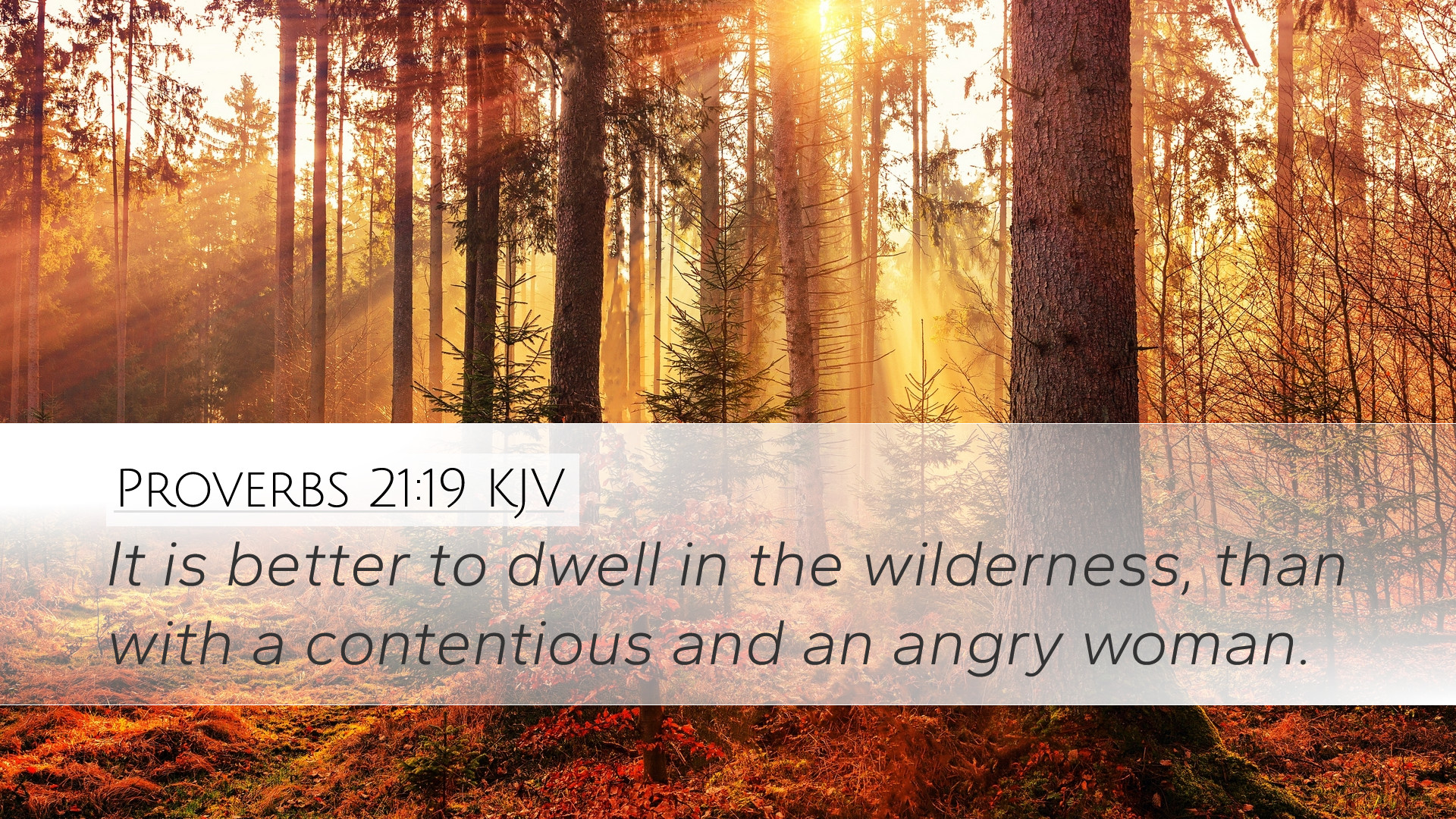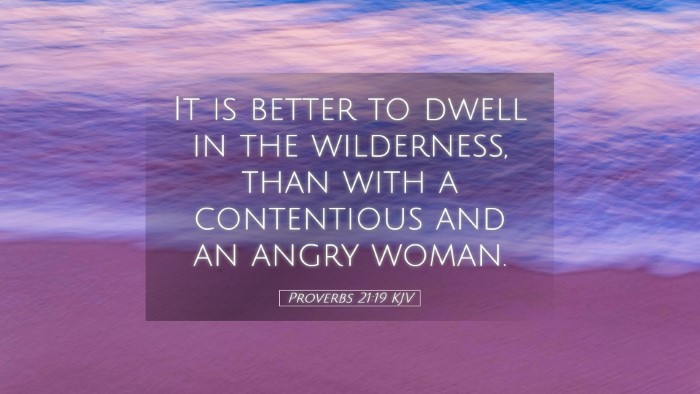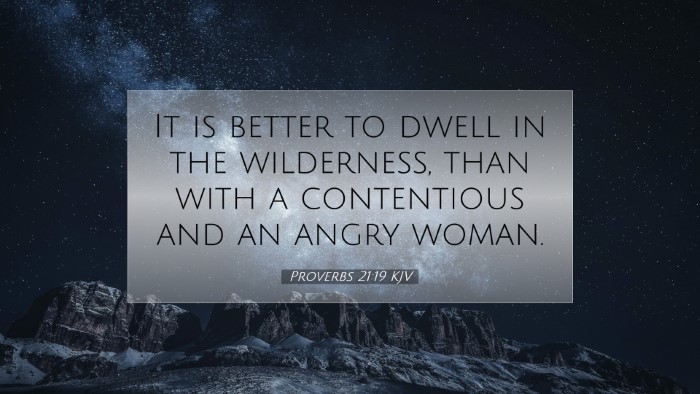Commentary on Proverbs 21:19
Verse: "It is better to dwell in the wilderness, than with a contentious and an angry woman."
Introduction
The verse Proverbs 21:19 addresses the relational dynamics that can cause turmoil within the home. It uses vivid imagery to depict a scenario in which solitude in a desolate place is preferred over the strife generated by contentious relationships. This commentary draws from the insights of various public domain commentators, providing a rich tapestry of interpretations relevant to pastors, students, theologians, and Bible scholars.
Thematic Insights
-
Contentious Relationships
Albert Barnes notes that the term "contentious" suggests a spirit of strife and quarrel. He emphasizes that such a disposition leads to an environment that is toxic and difficult to bear.
-
Anger and Its Effects
Matthew Henry comments on the destructive nature of anger. He reflects that anger not only influences interpersonal relationships negatively but also deteriorates one’s own peace of mind. An angry person often creates an atmosphere of discomfort, which can be unbearable.
-
Desolate Places
Adam Clarke interprets the 'wilderness' as a metaphorical choice for solitude over the tumult of a contentious relationship. He elaborates that the wilderness, often seen as desolate, may actually represent a place of peace compared to a home plagued by conflict and dissatisfaction.
Practical Applications
This verse serves as both a warning and a guide for individuals in relationships. The implications can be seen in various facets:
-
For Married Couples
Couples should strive to communicate effectively to avoid contentiousness. Henry stresses the importance of resolving disputes amicably to foster a harmonious home environment.
-
Community Dynamics
In broader communities, this biblical principle advocates for peaceful interactions among individuals. Barnes points out that churches and organizations can benefit from this wisdom to prevent division.
-
Individual Conduct
Each individual is called to examine their own behavior. Clarke emphasizes the critical importance of self-control and being slow to anger, reflecting the need for personal responsibility in creating a peaceful environment.
Contrasting Views
Matthew Henry provides a nuanced take, suggesting that while solitude may seem preferable, it also underscores the need for loving, considerate relationships. He warns against the extremes, advocating for reconciliation where possible. Likewise, Albert Barnes notes that spiritual growth often occurs within the context of relationships, suggesting that conflict can sometimes be a catalyst for deeper understanding and patience.
Conclusion
Proverbs 21:19 invites reflection on the nature of our relationships and the environment they create. It serves as an admonition to seek peace and pursue relational harmony, while also recognizing the profound effects of anger and contention. By drawing from the rich insights of biblical commentators, this verse encourages a practical application of wisdom within our personal and communal lives.


